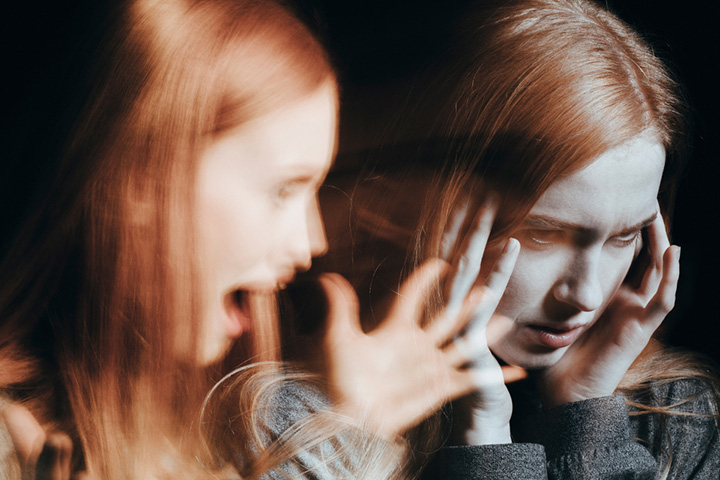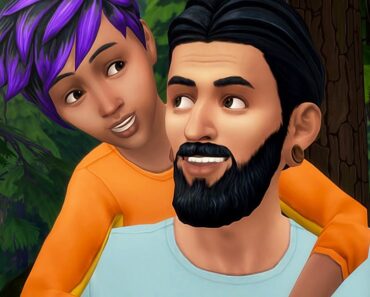Schizophrenia is a severe mental health disorder characterized by distorted perception, emotions, thinking, behavior, and use of language. It is a type of psychosis where the child may experience disconnection from reality. The severity of schizophrenia may change over time, with periods of worsening and remission of symptoms.
Schizophrenia may cause hallucinations, such as hearing voices or seeing things not present, and delusions, such as having false and fixed beliefs distorted from reality. Although these psychotic symptoms are hallmarks of schizophrenia, they can also be caused by other mental health disorders.
Childhood-onset schizophrenia (COS) usually occurs before 13 and affects one in 40,000 children (1). It is a severe form of schizophrenia with gradual onset and poor prognosis. However, early therapies and training may help the child cope with the severity of symptoms.
Read this post to know about the causes, risk factors, symptoms, complications, diagnosis, treatment, and prognosis of schizophrenia in children.
Risk Factors And Causes Of Schizophrenia In Children
The exact cause of schizophrenia is not known. However, experts believe the following factors play a role in the development of schizophrenia (2) (3) (4).
1. Genetic factors
A combination of genes passed down from both parents can result in schizophrenia.
Children with a family history of more than one affected person in the family may have a significant risk for developing the disorder than others. Genetic factors such as an inherited chemical imbalance in the brain are also strongly linked to the development of schizophrenia.
2. Environmental factors during pregnancy
The following environmental factors during pregnancy are believed to be associated with schizophrenia in children (1).
- Exposure to certain chemicals and hormones
- Illicit drug use
- Alcohol use
- Exposure to viral and other infections
- Increased stress
- Poor nutrition
Other factors that may increase the risk for schizophrenia in children may include
- Immune system activation due to inflammation.
- Increased paternal age.
Although the factors mentioned above are linked to schizophrenia in children, how they cause or trigger the disorder is unclear.
Symptoms Of Schizophrenia In Children
Children with schizophrenia can have slowly progressive or sudden onset of behavioral changes. For instance, they may gradually become shy and withdrawn.
Although the symptoms may vary in each child, the following are considered early warning signs of schizophrenia (3) (4).
- Bizarre and detailed thoughts and ideas
- Hallucinations, such as seeing, feeling, or hearing things that are not real
- Delusions such as having ideas that are not based on reality
- Confused thinking, such as confuse television with reality
- Paranoia or suspiciousness, such as fearing that something or someone is going to harm them
- Distorted perception of reality, such as being unable to differentiate dreams from reality
- Moodiness
- Trouble sleeping
- Violent or aggressive behavior
- Severe anxiety and increased fear
- Inability to make friends and social withdrawal
- Difficulty in doing schoolwork
- Catatonic or disorganized behavior, such as suddenly becoming confused or agitated and sitting or staring as though they are immobilized
- Odd behaviors such as an older child acting like a young child
- Lack of emotional expressions in their speech
- Disoriented speech
These schizophrenia symptoms are often classified into the following groups.
- Positive symptoms (hallucinations, delusions)
- Negative symptoms (social withdrawal, flat affect, emotional unresponsiveness)
- Disorganized speech (incomprehensible speech)
- Catatonic behaviors (mood swings, confusion, sudden aggression, and sudden staring and motionless)
Schizophrenia symptoms can be similar in children and adults. However, children are more likely to experience auditory hallucinations and lesser delusions or other forms of thought problems than adults.
Complications Of Schizophrenia
Untreated cases of childhood schizophrenia can lead to severe behavioral, emotional, and health problems in later life. The following are some complications of schizophrenia that may occur in childhood or later life (4).
- Self-harming (self-injury) behavior
- Depression
- Family conflicts
- Anxiety disorders and panic disorders
- Obsessive-compulsive disorder (OCD)
- Alcohol and drug abuse
- Nicotine use
- Social isolation
- Victimization
- Inability to live independently
- Medical, legal, and financial problems
- Aggressive behavior (rare)
Complications may occur early or later in life depending on individual factors. Support and encouragement from family and friends with appropriate therapies may help alleviate or delay these complications.
Prevention Of Schizophrenia In Children
There is no known way to prevent schizophrenia in children. Proper pregnancy care, including good nutrition, may lower the risk of a child developing schizophrenia. Identifying the symptoms early on and providing timely care can help improve the child’s quality of life and prevent complications.
When To See A Doctor?
Seek pediatric consultation if your child has any symptoms of schizophrenia or other mental health disorders. You may also pay attention to their behavioral and academic problems and seek counseling if needed.
Diagnosis Of Schizophrenia
Schizophrenia is usually diagnosed after assessment by a psychiatrist. However, there are no known tests for schizophrenia (4) (5). Instead, mental health professionals may use the criteria in the Diagnostic and Statistical Manual of Mental Disorders (DSM-5), published by the American Psychiatric Association for diagnosis.
These criteria help rule out other mental health disorders and determine that the schizophrenic symptoms are not due to substance abuse, medications, or other medical problems.
Physical examination and tests are often done to rule out the other causes of symptoms. For example, blood or urine tests and screening to look for alcohol or substance use and imaging studies such as MRI or CT to visualize brain abnormalities are often ordered. These are done to exclude other conditions with similar symptoms before confirming the diagnosis.
An exact diagnosis may not be possible in some cases if a child has symptoms of other psychiatric disorders along with schizophrenia. The common related mental illnesses may include
- Bipolar disorder, a psychiatric disorder characterized by extreme mood swings, mania (excited behaviors), and deep depression.
- Schizoaffective disorder, a mental disorder with symptoms of bipolar disorder and schizophrenia. This may occur once or often come and go and is usually triggered by stress.
- Substance misuse.
- Post-traumatic stress disorder (PTSD).
Treatment For Schizophrenia In Children
There is no specific cure for schizophrenia. The existing treatment strategies aim to reduce symptoms and improve the child’s quality of life. A combination of therapies is often needed for the effective management of schizophrenia. Some children may require lifelong treatment.
Hospitalization is often recommended for children with severe symptoms. This can ensure a child’s safety, nutrition, hygiene, and sleep. However, some children may receive partial hospitalization and residential care if the symptoms are not too severe (4).
The following treatment methods are often recommended by pediatric psychiatrists (6).
Medications are necessary to treat schizophrenia. Neuroleptics or antipsychotic medications are commonly prescribed to reduce schizophrenic symptoms in children. Taking medications as per the prescription can help reduce the severity of hallucinations, delusions, etc.
Follow-ups are required to adjust the dosage and type of medication over time to maintain their effectiveness. Haloperidol (Haldol), Loxapac (loxapine), Thorazine (chlorpromazine), etc., are examples of neuroleptics used to treat the symptoms of schizophrenia.
Psychotherapy or talk therapy is one of the main psychiatric treatments for mental health disorders in children. Sessions with pediatric psychologists or psychiatrists help improve the understanding of the disorder and various ways to manage the symptoms. Psychotherapy includes
- Individual therapy, which helps the child manage the symptoms and vocalize their feelings, such as anger, fear, anxiety, or sadness associated with chronic mental illnesses.
- Family therapy, which involves educating loved ones about the condition and what they can do to manage the child’s condition. This helps build a support system and enables the family members to be active participants in the child’s care.
Psychotherapies can also help the child deal with the stigma of mental illness and cope with daily challenges.
- Specialized educational and activity programs
Specialized programs offered in schools, communities, and medical centers can benefit children and teens with schizophrenia. The following trainings are offered to children with psychiatric illnesses.
- Smaller, customized classrooms with specially trained teachers
- Social skills training to improve personal interaction, such as maintaining eye contact when holding a conversation.
- Teaching personal hygiene skills and everyday tasks
- Teaching how to prepare a meal and other survival skills
- Vocational training to find volunteer and job opportunities
- Speech and language therapy and programs to improve verbal and written communication
Prognosis For Schizophrenia In Children
The prognosis may vary depending on the severity of symptoms. For example, early-onset of schizophrenia usually has poor outcomes. However, early ongoing treatment may offer better outcomes than leaving it untreated (7).
Coping And Support
The following tips may help parents cope and support a child with schizophrenia.
- Learn about the condition and the warning signs to seek medical care.
- Stick to the treatment plans, even though the results may be slow.
- Join a support group to learn about other parents’ experiences.
- Seek professional help if you feel distressed or overwhelmed about your child’s condition.
- Engage in healthy hobbies, exercises, and recreational activities to energize the family.
- Maintain a regular eating, sleeping, and activity schedule at home.
- Share responsibilities and find some time as individuals.
You may also seek support from online support groups and organizations. Sticking to a routine and not discontinuing a child’s training and therapy sessions may help improve their quality of life.
Schizophrenia is a chronic condition requiring lifelong care. Continued training and support from parents can help make your child independent. You may also actively participate in your child’s care. Never hesitate to seek support and help from friends and experts if you are stressed or struggling to cope with your child’s condition.


































